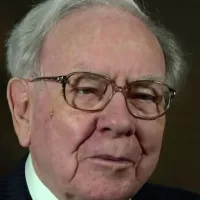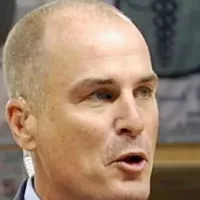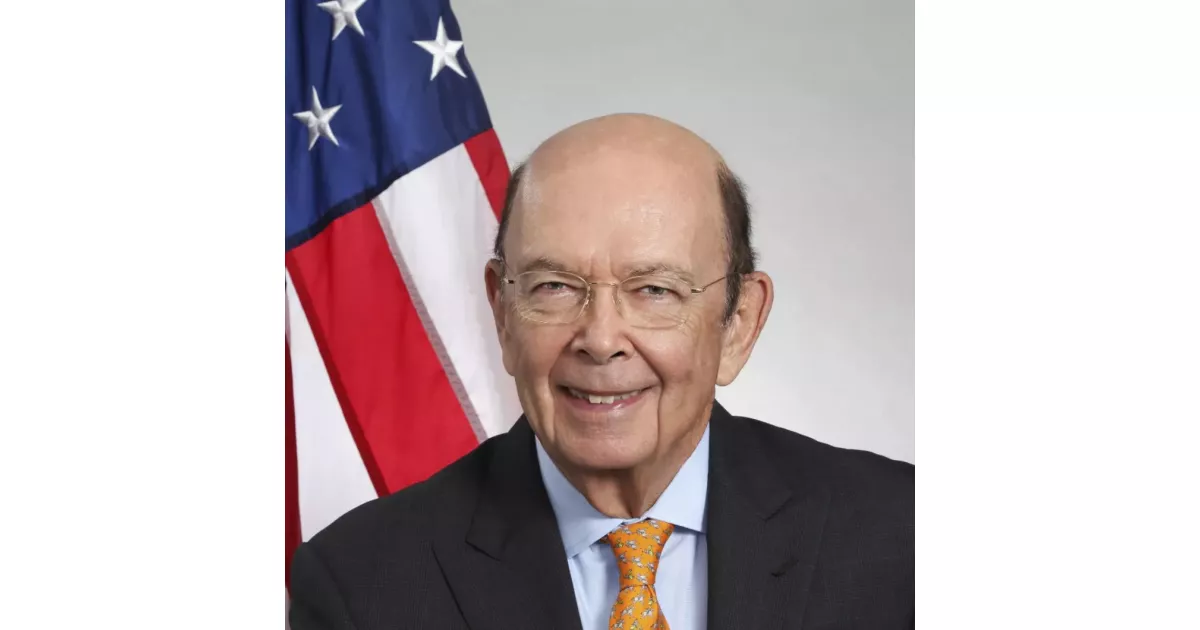Wilbur Louis Ross Jr. is an American businessman and politician. He served as the 39th United States Secretary of Commerce from 2017 to 2021 under the Trump administration. Prior to his political career, Ross was chairman and CEO of WL Ross & Co. from 2000 to 2017, establishing himself as a prominent figure in the world of business and investment. As Secretary of Commerce, he played a key role in shaping trade policies and economic strategies.
November 28, 1937: Wilbur Ross Born
On November 28, 1937, Wilbur Louis Ross Jr. was born. He later became an American businessman and the 39th United States Secretary of Commerce.
1955: Graduation from Xavier High School
In 1955, Wilbur Ross graduated from Xavier High School in Manhattan, where he participated in track and led the rifle team.
1959: Graduation from Yale College
In 1959, Wilbur Ross received a bachelor's degree from Yale College, where he was involved with literary magazines and the radio station.
1961: Marriage to Judith Nodine
In 1961, Wilbur Ross married Judith Nodine.
1961: Graduation from Harvard Business School
In 1961, Wilbur Ross received a Master of Business Administration degree from Harvard Business School, further advancing his education.
1962: Birth of Jessica Colby Ross
In 1962, Jessica Colby Ross, the child of Wilbur Ross and Judith Nodine, was born.
1963: Joined Wood, Struthers & Winthrop
In 1963, Wilbur Ross joined what became Wood, Struthers & Winthrop, where he liquidated the portfolio of its venture capital affiliate.
1965: Birth of Amanda Colby Ross
In 1965, Amanda Colby Ross, the child of Wilbur Ross and Judith Nodine, was born.
1976: Began Employment with Rothschild & Co
In 1976, Wilbur Ross began his 24-year tenure with the New York City office of Rothschild & Co, where he managed the bankruptcy restructuring advisory practice.
1995: Divorce from Judith Nodine and Marriage to Betsy McCaughey
In 1995, Wilbur Ross divorced Judith Nodine and married his second wife, Betsy McCaughey, who was the Lieutenant Governor of New York.
November 1997: Started a Fund to Invest in Distressed Securities
In November 1997, while at Rothschild & Co, Wilbur Ross started a $200 million fund to invest in distressed securities, which earned a 15.2% return in its first year.
1997: Assistance During Asian Financial Crisis
In 1999, Wilbur Ross was awarded the Order of Industrial Service Merit medal for his assistance during the 1997 Asian financial crisis.
January 1998: Funding Betsy McCaughey's Campaign
In January 1998, Wilbur Ross provided $2.25 million in seed money for the campaign of his then-wife, Betsy McCaughey, who was seeking the Democratic nomination for Governor of New York.
1998: Involvement in Major Bankruptcies
By 1998, Wilbur Ross was involved in eight of the 25 biggest bankruptcies to date, including Drexel Burnham Lambert, Texaco, Public Service of New Hampshire (now Eversource Energy), and Eastern Air Lines.
1999: Order of Industrial Service Merit Medal
In 1999, Wilbur Ross was awarded the Order of Industrial Service Merit medal by South Korean president Kim Dae Jung for his assistance during the 1997 Asian financial crisis.
April 2000: Founded WL Ross & Co
In April 2000, just before the dot-com bubble burst, Wilbur Ross founded WL Ross & Co and raised $450 million to buy the fund from Rothschild and make additional investments.
2000: Divorce from Betsy McCaughey
In 2000, Wilbur Ross divorced his second wife, Betsy McCaughey.
February 2002: WL Ross & Co Founded International Steel Group
In February 2002, WL Ross & Co founded International Steel Group, agreeing to buy the assets of bankrupt Ling-Temco-Vought for $325 million.
2003: WL Ross & Co Averaged a 30% Return
By 2003, WL Ross & Co's fund had averaged a 30% return, demonstrating its success in distressed securities investments.
October 9, 2004: Marriage to Hilary Geary
On October 9, 2004, Wilbur Ross married his third wife, Hilary Geary Ross, who is a society writer for Quest magazine.
2004: Described as a supporter of protectionism
In 2004, The Economist described Wilbur Ross as a supporter of protectionism.
2004: Acquired Burlington Industries and Combined it with Cone Mills
In 2004, WL Ross & Co acquired Burlington Industries for $620 million, outbidding Warren Buffett. Burlington Industries was then combined with Cone Mills to form International Textile Group.
2004: Founded International Coal Group
In 2004, WL Ross & Co founded International Coal Group after acquiring the assets of several bankrupt coal companies, which led to protests from the United Mine Workers of America over changes to healthcare and pensions.
April 2005: Sold International Steel Group to Mittal Steel Company
In April 2005, WL Ross & Co sold International Steel Group to Mittal Steel Company for $4.5 billion, resulting in a significant profit for both the company and Wilbur Ross, who personally made $260 million and gained a seat on Mittal Steel's board of directors.
September 2005: Investment in Oxford Automotive
In September 2005, investors led by Wilbur Ross invested $100 million in Oxford Automotive for 25% of the company.
2005: Acquired Safety Components International
In 2005, Wilbur Ross acquired 77.3% of Safety Components International for $51.2 million, expanding his portfolio.
2005: Safety Violations at Sago Mine
In 2005, the Sago Mine had 12 roof collapses, and U.S. Department of Labor data showed 208 citations for safety violations during that same period, including 21 instances of toxic gas build-up.
October 2006: International Textile Group Acquired Safety Components International
In October 2006, Wilbur Ross had International Textile Group acquire Safety Components International, as Ross controlled both companies at the time.
2006: Formation of International Automotive Components Group and Merger of Oxford with Wagon Automotive
In 2006, International Automotive Components Group was formed by WL Ross & Co, and Oxford Automotive merged with Wagon Automotive.
2006: Sold WL Ross & Co to Amvescap
In 2006, Wilbur Ross sold WL Ross & Co to Amvescap, which is now known as Invesco.
2006: Sago Mine Disaster
In 2006, the Sago Mine disaster, an explosion likely caused by a lightning strike at a coal mine indirectly owned by International Coal Group, led to the deaths of 12 miners. Miners and their families accused Wilbur Ross of ignoring safety violations.
2007: IAC Acquired Lear's North American Interiors Operations
In 2007, International Automotive Components Group acquired Lear's North American interiors operations, continuing its expansion.
2011: Arch Coal Acquired International Coal Group
In 2011, Arch Coal acquired International Coal Group for $3.4 billion, marking the end of WL Ross & Co's involvement with the company.
2011: Ban of Public Protest in Saudi Arabia
In 2011, the Saudis banned public protest and demonstrations, a fact that Wilbur Ross seemed unaware of when praising the lack of protests during Trump's visit in May 2017.
2011: Recognition for Relief Efforts
In 2014, Wilbur Ross was awarded the American Irish Historical Society Gold Medal in recognition of his relief efforts after the 2011 Tōhoku earthquake and tsunami.
2011: Donations to Republican Candidates
Since at least 2011, Wilbur Ross began donating to Republican candidates and organizations.
January 2012: Leader of Kappa Beta Phi
In January 2012, Wilbur Ross became the leader (or "Grand Swipe") of the secret Wall Street fraternity, Kappa Beta Phi.
March 2012: Board of Directors of Navigator Gas
In March 2012, Wilbur Ross joined the board of directors of Navigator Gas.
February 2014: Settled Shareholder Lawsuit
In February 2014, Wilbur Ross paid $81 million to settle a lawsuit brought by shareholders alleging that he breached his fiduciary duty when structuring the merger of International Textile Group and Safety Components International.
January 2016: WL Ross & Co was the "biggest investor" in Navigator Gas
In January 2016, WL Ross & Co was the "biggest investor" in Navigator Gas, a liquefied gas shipping company.
August 2016: Settlement with SEC Over Fee Overcharging
In August 2016, Wilbur Ross agreed to reimburse investors $11.8 million and pay a fine of $2.3 million to settle a U.S. Securities and Exchange Commission probe into the overcharging of fees by WL Ross & Co.
November 2016: Registered Republican
In November 2016, Wilbur Ross registered as a Republican.
November 30, 2016: Nominated for Secretary of Commerce
On November 30, 2016, then-President-elect Donald Trump announced that he would nominate Wilbur Ross for Secretary of Commerce.
December 2016: Brexit as a "God-given opportunity"
In December 2016, after being designated by Trump as his nominee to lead the Commerce Department, Wilbur Ross said that Brexit was a "God-given opportunity" for other countries to draw business away from the UK.
December 2016: Purchase of Washington D.C. House
In December 2016, while his Manhattan penthouse apartment at The Briarcliffe was on the market, Wilbur Ross purchased a 10,000 square foot house in the Massachusetts Heights neighborhood of Washington, D.C., from Adrienne Arsht for $10,750,000.
2016: International Textile Group Acquired by Platinum Equity
In 2016, International Textile Group, which Wilbur Ross had formed earlier, was acquired by the private equity firm Platinum Equity.
February 2017: Forbes Reported Ross's Net Worth
In February 2017, Forbes reported that Wilbur Ross had a net worth of $2.5 billion. This was later revised to $600 million after financial disclosure forms showed less than $700 million in assets.
February 2017: Senate Confirmation
In February 2017, Wilbur Ross was confirmed by the Senate.
February 27, 2017: Senate Confirmation as Secretary of Commerce
On February 27, 2017, the Senate confirmed Wilbur Ross as Secretary of Commerce in a 72–27 vote.
February 28, 2017: Sworn in as Secretary of Commerce
On February 28, 2017, Wilbur Ross was sworn into office as the United States Secretary of Commerce.
May 2017: Controversy Over Lack of Protests in Saudi Arabia
In May 2017, Wilbur Ross accompanied Trump on his first foreign visit, to Saudi Arabia, and generated controversy after heralding the president's visit as a success due to a lack of protests, unaware that the Saudis had banned public protest and demonstrations since 2011.
May 2017: Agreement to sell stocks
In May 2017, Wilbur Ross agreed to sell his stocks before the end of May 2017.
May 2017: Reported Sleeping During Summit
Reports from as early as May 2017, indicated Wilbur Ross appeared to be asleep during President Donald Trump's speech at the Arab-Islam-American Summit in Riyadh.
September 2017: Travel to Beijing for Trade War De-escalation
In September 2017, Wilbur Ross traveled to Beijing as part of efforts to de-escalate the U.S.–China trade war.
November 2017: Ross's written statement
In November 2017, Ross gave a written statement that he had divested all his financial holdings. However, an investigation by Forbes in June 2018 found evidence contradicting his statement.
November 2017: Paradise Papers Disclosure
In November 2017, the Paradise Papers revealed that Wilbur Ross failed to fully disclose a financial interest in Navigator Gas, a shipping company with ties to Russian gas company Sibur, during his confirmation hearings.
December 2017: Citizenship Question Request
In December 2017, Wilbur Ross approved sending a request to the Department of Justice to add a question about U.S. citizenship status to the Census.
December 2017: Divestment from Invesco stock
In December 2017, Wilbur Ross divested from his stock in Invesco, originally worth between $10 million and $50 million.
2017: Trade deal with the UK as a low priority
In 2017, Wilbur Ross said that a trade deal with the UK was a low priority for the Trump administration, though he outlined possible terms.
February 2018: Commerce Department Recommended Tariff Increase
In February 2018, the Commerce Department, under Wilbur Ross's leadership, recommended an increase of tariffs on aluminum and steel imports.
March 1, 2018: Implementation of Tariffs on Steel and Aluminum Imports
On March 1, 2018, the Trump administration implemented a 25% tariff on steel and a 10% tariff on aluminum imports.
June 2018: Forbes Investigation Reveals Potential Conflicts of Interest
In June 2018, an investigation by Forbes found that Wilbur Ross, while Secretary of Commerce, owned stakes in companies co-owned by the Chinese government, a shipping firm tied to Vladimir Putin's inner circle, and a Cypriot bank reportedly caught up in the Robert Mueller investigation.
June 2018: Revelation of Ross's Stock Shorting
In June 2018, it was revealed that Wilbur Ross shorted stock after learning of an upcoming report with information that would adversely affect the company but before the story was published. He closed the position at a profit after the story was published. Ross also shorted two additional stocks in June 2018.
July 2018: Report on Ross's Invesco Stock Divestment
In July 2018, a report indicated Wilbur Ross had divested from his Invesco stock in December 2017, but between the end of May and the sale, the value of his holdings increased significantly. Also, on July 13, 2018, Ross announced he would sell his remaining stock after receiving a warning from an ethics watchdog about a potential criminal violation.
July 2018: Additional Stock Shorting
In July 2018, while serving as Secretary of Commerce, Wilbur Ross shorted two additional stocks.
August 7, 2018: Claims of Charging Fees on Lost Money
On August 7, 2018, five former WL Ross & Co. employees and investors claimed the firm was charging its investors fees on money it had lost, including allegedly charging fees on one investment that was essentially worthless.
August 2018: Accusations of Illicitly Siphoning Funds
In August 2018, Forbes reported that Wilbur Ross's business partners and workers accused him of illicitly siphoning or stealing a total of $120 million.
September 2018: Tariffs Meant to "modify China's behavior"
In September 2018, Wilbur Ross stated that the tariffs implemented by the Trump administration were meant to "modify China's behavior".
October 2018: Meeting with Chevron Executives
In October 2018, documents revealed that Wilbur Ross participated in a meeting with Chevron Corporation executives to discuss oil and gas developments, tax reform, and trade issues. At the time, Ross's wife held a stake in Chevron worth at least $250,000.
2018: Trade War Concerns at World Economic Forum
At the 2018 World Economic Forum in Davos, Wilbur Ross addressed concerns about a trade war, stating that "There have always been trade wars. The difference now is U.S. troops are now coming to the ramparts."
2018: Criticism for Being Out of Touch with Average Americans
During the 2018–19 federal government shutdown, Wilbur Ross was criticized as being out of touch with average American citizens after expressing bewilderment about why furloughed workers would visit food banks rather than apply for personal loans.
2018: Purchase of house in The Berkshires
In 2018, Wilbur Ross purchased a $3.2 million house in The Berkshires.
January 15, 2019: Census Question Proposal Blocked
On January 15, 2019, U.S. federal judge Jesse M. Furman blocked the census question proposal, stating that Wilbur Ross had violated federal rules and made false statements.
January 2019: Announcement of Criminal Charges Against Huawei
In January 2019, Wilbur Ross was present with other American politicians when 23 criminal charges were announced against Huawei and its CFO Meng Wanzhou.
January 2019: End of Board Service
Wilbur Ross served on the board of a Chinese joint venture until January 2019.
February 2019: Rejection of Financial Disclosure by Office of Government Ethics
In February 2019, Wilbur Ross's financial disclosure was rejected by the Office of Government Ethics after he reported that he had sold bank stock when in fact he held on to them.
June 2019: Contempt of Congress Vote
In June 2019, the House held Wilbur Ross and Attorney General William Barr in contempt of Congress on a mostly party-line vote, due to refusal to comply with a congressional subpoena regarding the 2020 Census citizenship question.
June 27, 2019: Supreme Court Ruling on Citizenship Question
On June 27, 2019, the Supreme Court, in Department of Commerce v. New York, left the citizenship question blocked from the 2020 census, citing a mismatch between Wilbur Ross's decision and his stated reason for adding the question.
July 2019: Report on Commerce Department Distraction
In July 2019, Politico reported that the Commerce Department under Wilbur Ross was seen as "irrelevant" with low morale, and that Ross allegedly fell asleep in meetings.
July 2019: Decision to Keep Huawei on Blacklist but Allow Licensed Sales
In July 2019, Wilbur Ross stated that the United States would keep Huawei on its blacklist but would allow licensed sales.
September 1, 2019: Hurricane Dorian Controversy
On September 1, 2019, President Donald Trump made a false claim about Hurricane Dorian threatening Alabama, and later Wilbur Ross allegedly threatened to fire NOAA staff unless they disavowed their contradiction of Trump's statement.
November 2019: Potential Tariffs on Automobile Imports from the EU
In November 2019, Wilbur Ross indicated that the Trump administration might also impose tariffs on imports of automobiles from the EU.
January 2020: Hopes for an "easy" agreement with the UK
In January 2020, Wilbur Ross and Steve Mnuchin stated that they hoped to have an "easy" agreement with the UK that year, though no such deal was concluded.
January 2020: Potential Tariffs on European Cars and Retaliation Against EU Carbon Tax
In January 2020, Wilbur Ross said that the Trump administration might still impose tariffs on European cars despite ongoing trade talks and threatened retaliation if the EU adopted a proposed carbon tax.
January 30, 2020: Comments on COVID-19
On January 30, 2020, Wilbur Ross commented that the COVID-19 outbreak in China could help accelerate the return of jobs to North America, a statement that was made before the outbreak became a pandemic.
April 13, 2020: Census Deadline Extension
On April 13, 2020, Wilbur Ross and Steven Dillingham announced an extension of the 2020 United States Census timeframe to October 31, 2020, due to delays from the COVID-19 pandemic.
July 2020: Inspector General's Letter
In a July 2020 letter to Wilbur Ross, Inspector General Peggy Gustafson expressed "deep concern" that the department was blocking OIG from publicly releasing its report by asserting "amorphous and generalized privileges."
August 3, 2020: Census Deadline Moved Up
On August 3, 2020, the Census Bureau announced that they were moving the 2020 Census deadline up to September 30, 2020 from the previous date of October 31.
September 24, 2020: Injunction Against Ending Census
On September 24, 2020, federal district court judge Lucy Koh issued a preliminary injunction against the plan to end counting on September 30 and blocked a plan to deliver the count results to the White House by December 31.
September 30, 2020: Revised Census Deadline
The Census Bureau announced on August 3, 2020 that they were moving the 2020 Census deadline up to September 30, 2020.
October 2020: Report on Ross's Board Service in Chinese Joint Venture
In October 2020, a report stated that Wilbur Ross continued to serve on the board of a Chinese joint venture until January 2019, even as the United States and China were engaged in a trade war.
October 31, 2020: Initial Extended Deadline for 2020 Census
On April 13, 2020, Wilbur Ross and Steven Dillingham announced they would extend the timeframe for field data collection and self-response for the 2020 United States Census to October 31, 2020, due to delays and operation challenges brought about by the COVID-19 pandemic.
2020: Oversight of the 2020 Census
As Secretary of Commerce, Wilbur Ross oversaw the Census Bureau and the 2020 Census.
2020: Lawsuit Filed Against Citizenship Question
In 2020, New York solicitor general Barbara Underwood led a lawsuit filed by 18 states and many cities to attempt to stop the Trump administration from adding a citizenship question on the 2020 Census.
2020: Congressional Subpoena for 2020 Census Documents
In 2020, Wilbur Ross and the Trump administration refused to comply with a congressional subpoena for documents regarding efforts to add a citizenship question to the 2020 Census.
2020: Citizenship Question Blocked from 2020 Census
In June 27, 2019 the Supreme Court left the citizenship question blocked from the 2020 census.
April 2021: Blocked Delivery Date for Census Results
On September 24, 2020, judge Lucy Koh blocked a plan to deliver the count results to the White House by December 31, rather than the original April 2021 delivery date.
July 2021: Justice Department Determination on Ross's Misleading Congress
In July 2021, it became known that the Justice Department inspector general determined Wilbur Ross had misled Congress, but the Trump Justice Department declined to prosecute him.
July 23, 2021: Chinese Sanctions
On July 23, 2021, the Chinese government sanctioned Wilbur Ross as part of "reciprocal counter-sanctions" after the U.S. government imposed sanctions on Hong Kong officials.
Mentioned in this timeline
Huawei is a Chinese multinational technology corporation headquartered in Shenzhen...

Donald John Trump is an American politician media personality and...

Vladimir Vladimirovich Putin is a Russian politician and former intelligence...
The United States of America is a federal republic located...

The White House located at Pennsylvania Avenue NW in Washington...

Warren Buffett is a highly successful American investor and philanthropist...
Trending

3 months ago Tyler Herro shines in Heat debut, leads team to victory over Mavericks.

59 minutes ago Sloane Stephens and Jozy Altidore Announce Divorce After Four Years of Marriage

60 minutes ago Jay Bilas Praises UNC; Dixon Struggles; Davis's Job May Be Safe

60 minutes ago Timothée Chalamet and Matthew McConaughey Reunite, Discuss 'Interstellar' and Share Memories.

2 hours ago Cameron Boozer: Duke Forward, Elite Numbers, and Wooden Award Favorite

2 hours ago Josiah Harrell's Sensational UFC Debut After Rare Brain Disease Diagnosis: A Houston Story
Popular

Jesse Jackson is an American civil rights activist politician and...

Barack Obama the th U S President - was the...

Bernie Sanders is a prominent American politician currently serving as...

Ken Paxton is an American politician and lawyer serving as...

Michael Joseph Jackson the King of Pop was a highly...
Randall Adam Fine is an American politician a Republican who...
